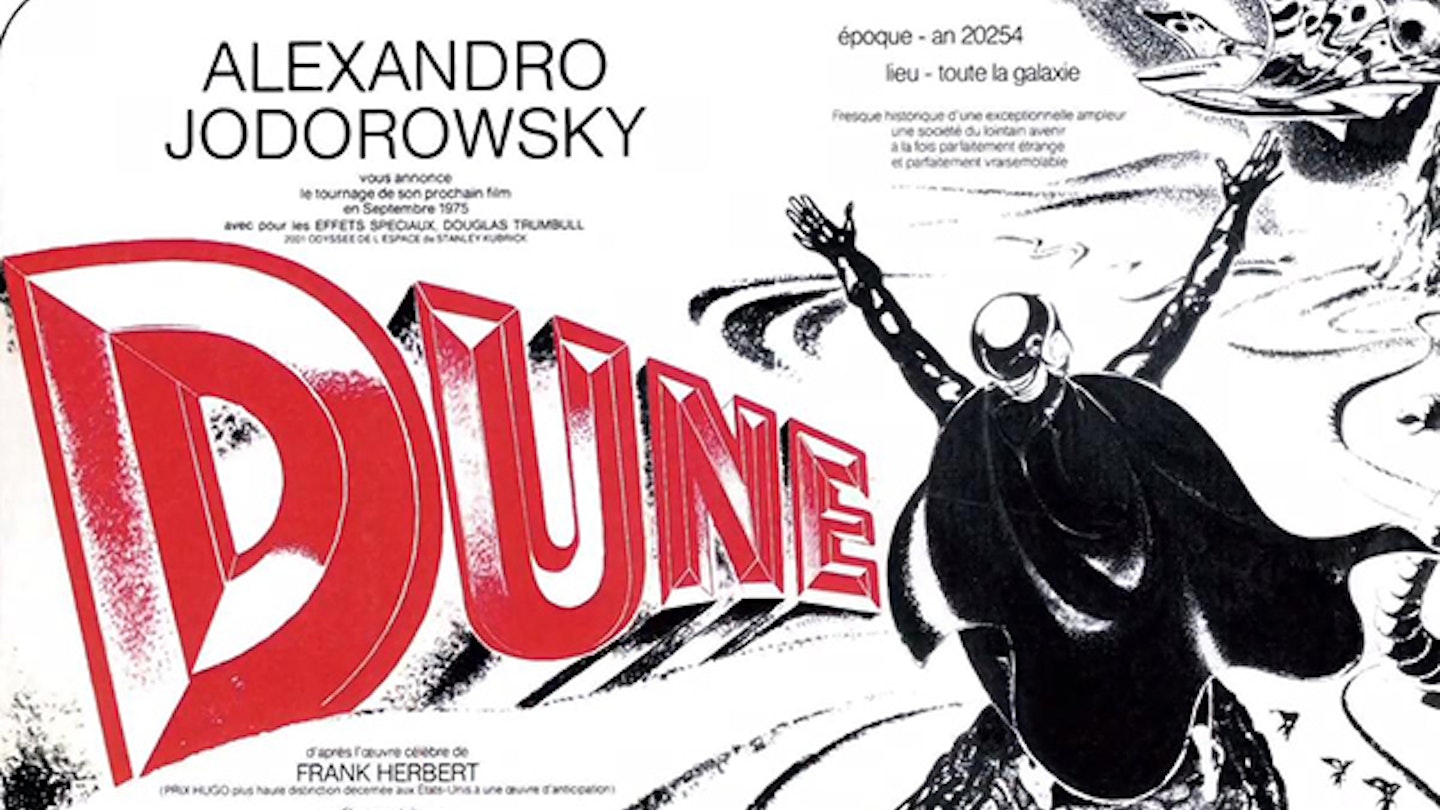As chronicled by Simon Braund in a back issue of Empire, Alejandro Jodorowsky's attempt to film Frank Herbert's sci-fi novel **Dune **is one of the most legendary unmade movies of all time. Last night saw the world premiere of Frank Pavich's documentary Jodorowsky's Dune, which details the madness and brilliance of the director's somewhat unorthodox journey. And while it doesn't add much to the story as it is generally known, it does paint a vivid picture of a movie that wasn't just meant to change the world of cinema but to change the world itself.
Teed up by Drive director Nicolas Winding Refn, who recalls a night at Jodorowsky's house when the Chilean-born director talked him through the illustrated shooting script, Pavich's film recaps the director's career to that point. Beginning as a performance artist and theatre director, Jodorowsky moved into film with 1968's surreal Fando Y Lis and followed it with the cult monolith El Topo (1970), the first true midnight movie. After following that with 1973's even crazier The Holy Mountain, Jodorowsky was asked by producer Michel Seydoux what he wanted to do next. He replied: Dune.
Sadly, not a single test shot remains, although the pair did produce a handsome pitch document with detailed storyboards. Some of the key players recall with fondness the director's outlaw approach to filmmaking, choosing “warriors” over technicians and inspiring them to create extreme works of art that no studio could ever possibly countenance.
But not only is it a good story, made even more entertaining by Jodorowsky's beaming face, there is also a reason why the film is so legendary; as directors Refn and Richard Stanley note, the Dune pitch document arrived in Hollywood just before the second coming of sci-fi, heralded by Star Wars and quickly followed by Alien and Flash Gordon. Would history be different if Jodorowsky had been allowed to make his movie? We will never know. But Pavich's film makes a strong case to suggest that it might.
